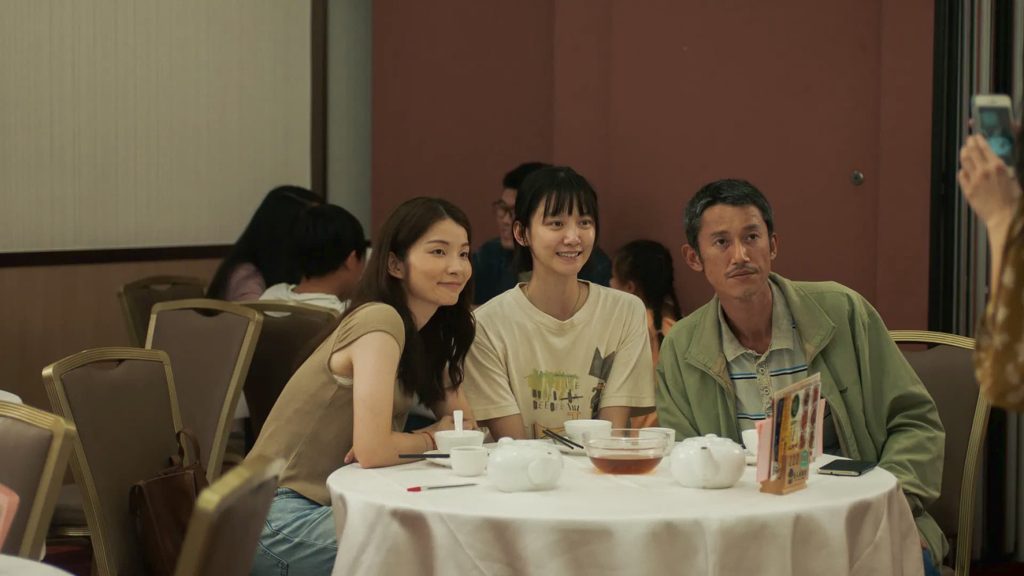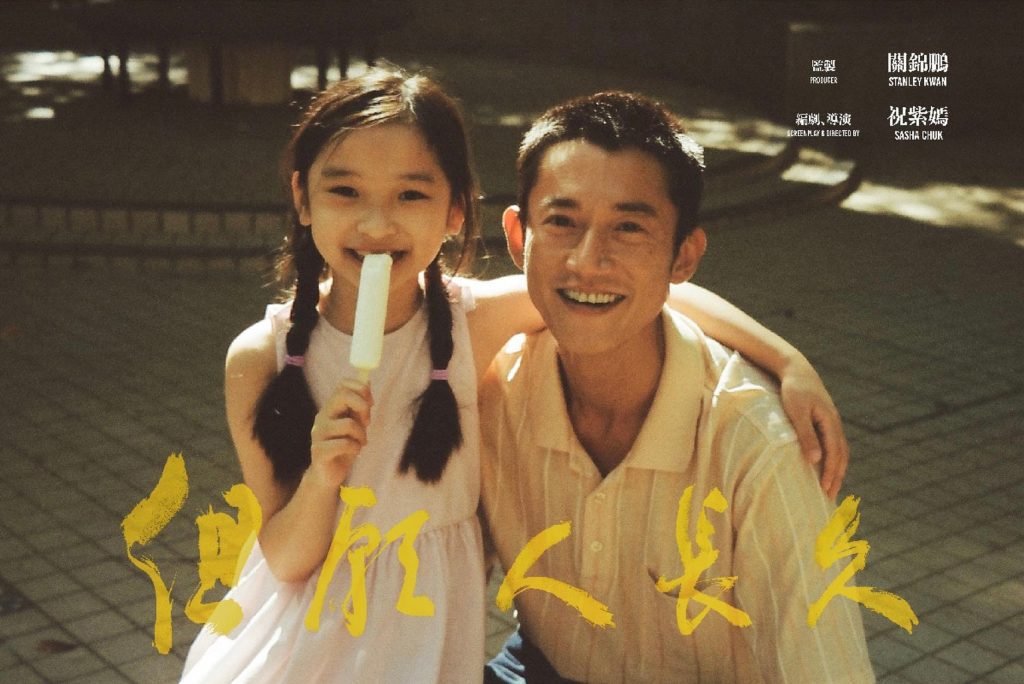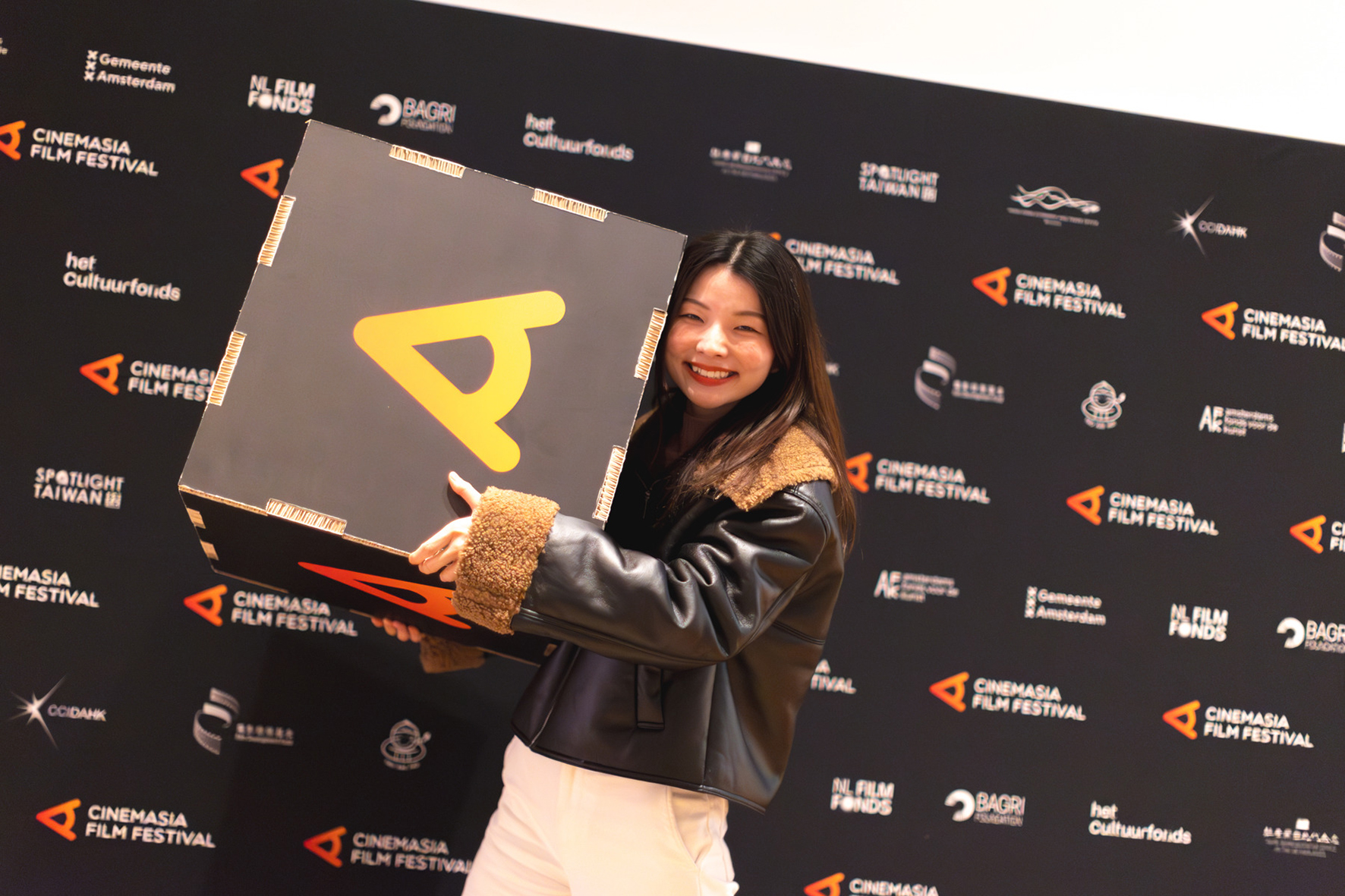Just before the final screening of Fly Me to the Moon at EYE Amsterdam, director Sasha Chuk sat down for a conversation about her debut feature. During her Amsterdam tour, she had already conducted several interviews and Q&As with the audience, and this interview marked her final one. Regarded as one of the rising stars in the film industry, Chuk shares her personal journey and the emotions her work evokes. This semi-autobiographical drama follows the story of two sisters who, alongside their mother, move from Hunan to Hong Kong for family reunification. Set against the backdrop of significant political and social changes in this cosmopolitan city, the narrative delves into the complex themes of family relationships, identity, and the challenges faced by migrants.
The movie contains numerous autobiographical elements. For instance, the elementary school scenes were filmed at Chuk’s own school, with real students appearing as extras. “That made the scenes especially meaningful,” she says. In addition to these moments, which reflect a deeply personal aspect of her youth, other scenes were directly inspired by cherished memories. One pivotal scene shows the family in a transparent hotel lift, ascending while they admire the evening skyline of Hong Kong. “We saw this together, as a loving family. This was a very private moment I wanted to share in this narrative.”
“My background as a writer plays a significant role,” Chuk begins, explaining her process. “I initially wrote fiction and books, and later began adapting my books into screenplays. The sisters in this story are partly based on myself, but also on the fictional dynamics of a family. In reality, I am an only child, but I wanted to explore the relationship between siblings. The idea to make a movie about my past, with moments from my own youth, came later. After I wrote the synopsis, I realised that the characters had a lot of potential to grow, especially as there was so much to discover about family dynamics and growing up as a migrant.”
The fragile father-daughter relationship forms the core of this narrative. This is a universal theme that deeply resonates with the director. “My own experiences with my father, especially our relationship during my teenage years, inspired me to tell this story,” she explains. The film is not just about the pain of the past but about learning to cope with that pain, forgiveness, and continuing to grow. “Actually, it is about moving forward in life and a matter of self-reconciliation.”
Another key aspect of Fly Me to the Moon is the suffocating sense of confinement created by the absence of privacy, a challenge many Hong Kong residents face on a daily basis. “In Hong Kong, many people live in very small apartments, where personal space is a luxury. This absence of space is not only physical but also emotional,” Chuk explains. In the movie, the sisters often sleep together in a shared bunk bed, sometimes even with their mother, heightening the unspoken tension within the family.

Chuk has always struggled with a feeling of alienation, a theme that runs throughout the movie. Despite living in Hong Kong for nearly thirty years, she still sometimes feels like an outsider. “When I migrated to Hong Kong, I immediately wanted to learn Cantonese to connect, not just to communicate, but to truly engage with the culture. Language was essential for me to feel at home,” she shares. The movie features several languages—Hunanese, Cantonese, Mandarin, and even Japanese—that reflect both the barriers and bridges of connection. “The sisters mainly speak Hunanese to each other. Personally, I’ve always focused on learning Cantonese, and the English influence also plays a significant role. But for my parents, who moved to this metropolis as adults, it was much harder. My mother, despite working hard to learn the language, has always retained a Hunanese accent. This gave her a sense of exclusion. I wanted to integrate those insights into the narrative, because language is a powerful way to feel connected or to feel alienated.”
The movie is not only an exploration of family history but also of Chuk’s personal journey toward self-discovery. “Processing personal subjects into a screenplay is my way of storytelling,” she says. “As a child, I often felt lonely, and I wanted to show that. This expression is also my way of sharing that feeling of isolation.” Some scenes are directly inspired by her own life, such as when the oldest daughter Yuen fictively speaks to her younger sister in China on the phone. “I also had imaginary conversations. For me, it was very difficult to make friends at school. I wanted to capture those emotions because I experienced them as a child myself.”
In addition to writing the screenplay and directing, Chuk also played one of the lead roles. Her collaboration with producer Jun Li and legendary editor William Chang was an essential experience for her. “Working with people I admire has enriched my vision and made it possible to bring my ideas to life. Without their support, this project wouldn’t be what it is now,” she says with a smile. She also learned a lot about budgets, speaking candidly: “Some scenes were shot with a handheld camera because our budget allowed for that. Fortunately, those scenes were intended to be filmed that way.”
After the final screening of Fly Me to the Moon, Sasha Chuk is now looking forward to her next projects. “I want to continue telling intimate stories that resonate with others. My work is about what it means to feel at ease somewhere and what we take with us from the cultures we grow up in.”
Summary: Fly Me to the Moon
In 1997, Yuen and her mother move from Hunan, China, to Hong Kong—a new beginning within a family system. The younger sister, Kuet, joins the family later. Over two decades, their lives are dominated by the drug addiction and criminal activities of their father. The story explores the sisters’ search for identity, their complex relationship with their father, and the challenges of growing up as a migrant in a constantly changing metropolis.
Biography of Sasha Chuk
Sasha Chuk (1991) is a filmmaker known for her personal and introspective approach. Fly Me to the Moon (2023) is her first full-length feature film. In addition to directing her self-written screenplays, she is also involved in acting and writing fiction. The movie has been well received and won three Golden Horse Awards in Taipei, Taiwan.

About CinemAsia
CinemAsia, founded in 2003, is an annual film festival in Amsterdam that focuses on socially and culturally relevant films and documentaries. The festival provides a platform for both emerging and established filmmakers and attracts a diverse audience to various film house locations in the city.
CinemAsia On Tour (5 April – 25 May 2025)
This programme of CinemAsia on tour includes Between Goodbyes (Audience Award Winner), Fly Me to the Moon (Hong Kong, 2023) by Sasha Chuk, Black Dog (China, 2024) by Guan Hu, Yen and Ai-Lee (Taiwan, 2024) by Tom Lin Shu-Yu, and the restored classic Girl’s School (Taiwan, 1982) by Lee Mi-Mi. For dates in Forum Groningen, KINO Rotterdam, Filmhuis Den Haag, Natlab Eindhoven and Lumière Maastricht, check CinemAsia On Tour.




